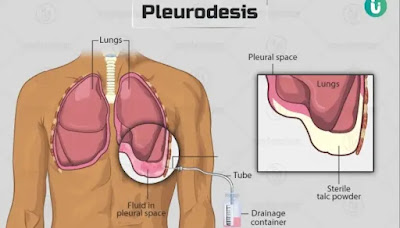Causes of Mesothelioma Among Veterans
Military veterans face a heightened risk of mesothelioma due to the extensive use of asbestos within the armed forces from the 1930s to the 1980s. Asbestos, prized for its fire-resistant qualities, found its way into various military applications:
- Army: Asbestos was integrated into barracks, vehicles, and aircraft.
- Navy: Shipbuilding utilized asbestos in boilers, steam pipes, and turbines.
- Air Force: Asbestos was employed in aircraft engines, brakes, and insulation.
- Marines: Asbestos was present in barracks, ships, and vehicles.
The Navy,
in particular, had substantial asbestos exposure risks. Shipyard roles,
particularly in ship construction and maintenance, exposed veterans to high
levels of asbestos.
Following
their military service, veterans might encounter asbestos exposure from various
other sources. Some professions or hobbies, like car restoration, have
associations with asbestos. Moreover, family members of veterans might have
been indirectly exposed to asbestos.
Veterans,
regarded as heroes for their service in safeguarding the nation, often faced
asbestos exposure during their military tenure, leading to mesothelioma. They
rightfully deserve the available benefits and support systems.
Types of Veterans Benefits for Mesothelioma
If you're
a veteran diagnosed with mesothelioma, you could be eligible for full
disability compensation, provided by the U.S. Department of Veterans Affairs.
This compensation package may include health care services and regular monthly
payments.
As a surviving
spouse of a veteran, you might also qualify for benefits. For instance, you
could be eligible for Dependency and Indemnity Compensation (DIC). This benefit
is accessible if your spouse passes away due to a service-related disability.
VA Health Care
The
eligibility for VA health care enrollment relies on the income level of the
veteran. Additionally, confirmation of an illness linked to their service is
required.
Regarding
mesothelioma, the VA deems it service-connected if at least 50% of the asbestos
exposure occurred during active duty.
Disability Compensation
Monthly
disability compensation is contingent on a veteran's level of disability and is
affected by the number of dependents. Mesothelioma and other asbestos-related
cancers are considered 100% disabling by the VA.
For
veterans without dependents who have been diagnosed with mesothelioma, the
monthly payment is $3,621.95. Married veterans receive a monthly compensation
of $3,985.96. These figures are based on the Veterans Compensation Benefits
Rate Tables, which outline varying rates for different situations.
Special Monthly Compensation
Veterans
with disabilities that necessitate the assistance of another person can be
eligible for special monthly compensation, which typically ranges from $4,600
to over $6,120 per month. This benefit extends to spouses and parents of
veterans as well.
The rates
for special monthly compensation are contingent on various factors, such as the
number of dependents among other considerations.
Dependency and Indemnity Compensation
Surviving
spouses of veterans whose death was due to service-related disabilities are
entitled to Dependency and Indemnity Compensation (DIC), a monthly benefit that
can amount to up to $1,562.74.
In certain
situations, an extra monthly payment is accessible, but spouses of deceased
veterans must submit a claim to receive this additional benefit.
VA Burial Benefits
The burial
allowance provided by the VA for a death associated with military service
amounts to $2,000. To access this benefit, individuals must demonstrate that
they covered the expenses for a veteran's burial or funeral.
\Additionally,
proof of the veteran's death resulting from a service-connected disability is
necessary. This encompasses disabilities like mesothelioma attributed to
military asbestos exposure. Familiarizing oneself with the specific prerequisites
for filing a claim is crucial in this process.
Who's Eligible for Veterans Benefits?
To qualify
for VA benefits, it's crucial to initiate the claim process promptly upon
diagnosis. Gathering documentation on asbestos exposure and diagnosis is essential
for filing a VA claim.
Once the
necessary requirements are met, seeking assistance from a VA-accredited claims
agent is advisable. These professionals can guide you through the process and
ensure you receive the compensation you're entitled to. Collaborating with a
VA-accredited claims agent can simplify the entire process, providing support
from beginning to end.
Asbestos
exposure poses a significant risk for various diseases, many of which are
eligible for VA benefits. These diseases include asbestosis, lung cancer,
mesothelioma, and others such as bronchus cancer, gastrointestinal cancer, and
interstitial pulmonary fibrosis, among others.
Veterans
diagnosed with mesothelioma should seek assistance to access the benefits they
deserve. Contacting a VA-accredited claims agent is a crucial step in
commencing the claim process.
Treatment for Veterans with Mesothelioma
It's vital
for veterans diagnosed with mesothelioma to understand the importance of early
diagnosis and prompt treatment.
Symptoms
of this condition might manifest several decades after military service. If you
experience any symptoms following asbestos exposure during your service, it's
essential to consult your doctor. They can assist in diagnosing the condition
and discussing available options.
Upon
receiving a mesothelioma diagnosis, seeking out a specialist becomes crucial.
The VA provides access to leading mesothelioma specialists across the United
States, ensuring veterans have access to the most advanced treatment options
available.
The
primary treatments for mesothelioma typically encompass surgery, chemotherapy,
and radiation therapy.
Eligible
veterans can access these treatments through the VA, which also provides
support for travel arrangements, covering expenses like airfare and housing.
For veterans
meeting specific criteria, the Veterans Choice Program extends the option to
receive care outside the VA system.
Eligibility
is applicable for veterans residing more than 40 miles from the nearest VA
facility or for those unable to secure an appointment within 30 days.
Veterans
are encouraged to discuss these options with their VA doctor to determine the
most suitable course of action.




Comments
Post a Comment